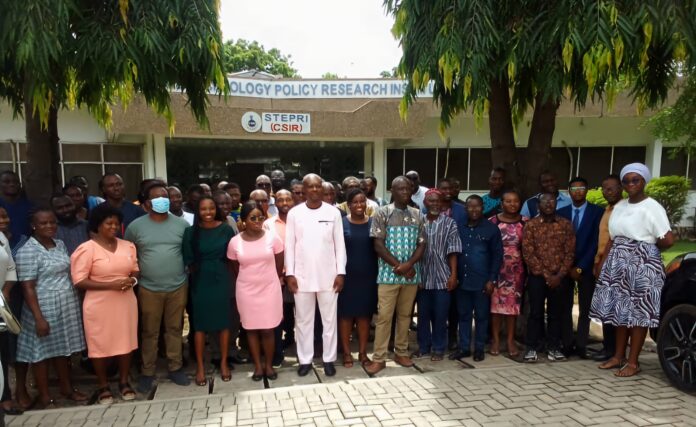Non-State Actors have called on member countries under the Comprehensive African Agricultural Development Programme (CAADP) to allocate 10% of their public investment into agriculture.
CAADP is an Agenda 2063 continental initiative that aims to help African countries eliminate hunger and reduce poverty by fostering economic growth through agriculture-led development.
This call was made during the Non-State Actors engagement workshop on the CAADP Post-Malabo Agenda held at the CSIR-STEPRI conference room in Accra on Thursday, June 6, 2024.
The Acting Executive Director of the Peasant Farmers Association of Ghana, Bismark Owusu Nortey, explained that CAADP operates in ten-year phases. The initial phase, known as the Maputo Declaration, spanned from 2003 to 2013.
The Malabo Declaration followed in 2014 and is set to conclude in 2025, thus the importance of understanding the post-Malabo agenda.
He speculated that the post-Malabo agenda might be named ‘Kampala,’ although this was not confirmed.
National President of the Peasant Farmers Association of Ghana, Weipa Addo Awal Adugwala emphasized that in the new phase of CAADP Agenda 2063, African countries must incorporate climate change considerations into their budgets due to the significant impact of global climate changes on farming in Africa.
He stressed the need for mechanized farming methods under the post-Malabo agenda.
Focusing on Ghana, he urged the government to take decisive action against illegal mining (galamsey), which is devastating lands and water bodies and contributing to the rising prices of food commodities.
He cited a Ghana Statistical Service report that showed the price of onions increased from Gh¢600 per bag to Gh¢1,500 per bag within one week.
Despite government promises to support onion farmers, Adugwala noted that these promises have not been fulfilled.
He recommended that the government should deploy more National Service personnels to the agricultural sector to support the second phase of the Planting for Food and Jobs program.
Speaking on the Maputo and Malabo declarations, the biennial review (BR) process, and the results of the 4th biennial report, the CAADP Focal Person at the Ministry of Food and Agriculture (MOFA), Faisal Mukaila, delved into the technical aspects of CAADP.
He explained that the BR is conducted every two years to assess countries’ progress.
In 2017, Ghana was not on track according to the BR, but by 2021, the country was progressing well, being added to the two existing assessment indicators: ‘on track’ and ‘not on track,’ with the new category ‘progressing well’ introduced in 2021.
Mukaila highlighted that ECOWAS was reported to be the best-performing sub-region in Africa under the BR 2023, with Ghana ranking as the best among ECOWAS countries and 5th on the African continent.
He noted that Ghana needs to focus on reducing poverty rates at the international level.
He outlined some challenges faced by Ghana under the BR, such as difficulties in tracing the value of trade in services and the need for expert collaboration.
Mukaila called on institutions to improve data collection and urged traditional leaders to help farmers gain access to land for agricultural activities.
He recommended increasing investment in irrigation and boosting public expenditure to meet the 10% target.








